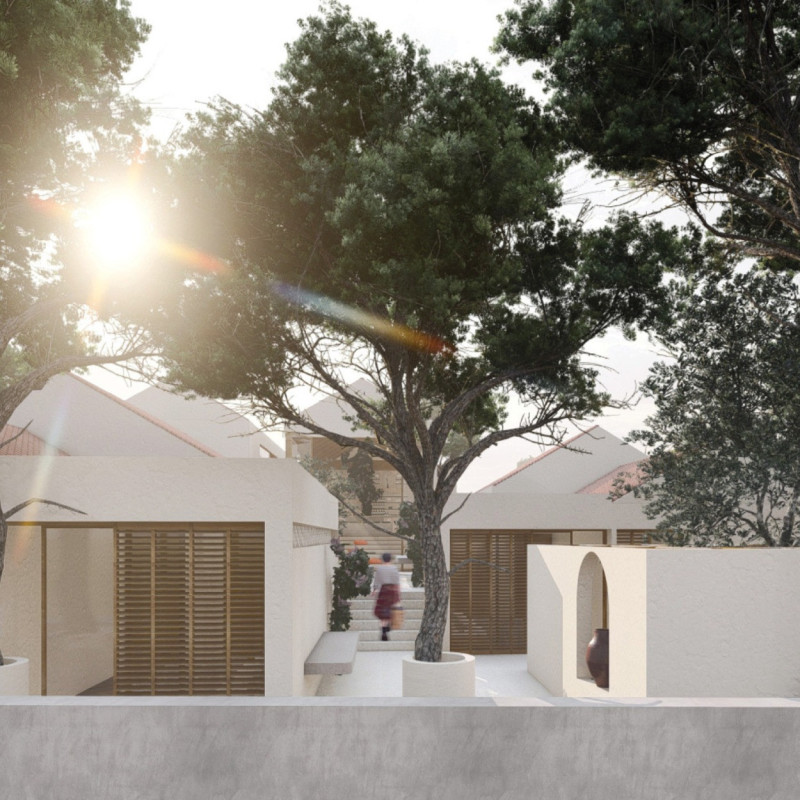5 key facts about this project
At its core, the Portugal Olive Guest House represents a commitment to sustainable living and respect for local heritage. The design emphasizes the importance of community, as reflected in the central courtyard that acts as a gathering point for guests. This feature is pivotal in encouraging social interactions, allowing visitors to share experiences and bond over their stay. The architectural approach taken here acknowledges the significance of space in shaping human experiences, making the guest house not just a temporary residence but a place for connection and community building.
The project’s materiality plays a significant role in its design philosophy. The use of rammed earth for the walls highlights sustainability and thermal efficiency, establishing a comfortable indoor climate that minimizes reliance on mechanical heating and cooling systems. Cork insulation further enhances energy efficiency while reinforcing the commitment to local materials that are renewable and sustainable. The inclusion of oak wood adds warmth and a natural aesthetic to the interiors, creating an inviting atmosphere for guests. Terracotta roof tiles, reflective of traditional construction methods, and natural stone pathways integrate the structure seamlessly with its landscape, grounding it within the surrounding environment.
A careful spatial organization defines the guest house, facilitating a fluid experience throughout the various functional areas. Private guest rooms are strategically positioned to ensure comfort and tranquility, while the communal dining and multipurpose rooms are oriented towards the courtyard and views of the landscape. This layout not only elevates guest comfort but also enhances the natural light and ventilation within the building, contributing to a healthy indoor environment.
The design does not shy away from unique approaches that set this project apart from conventional guest houses. By prioritizing an inward focus that embraces the courtyard, the architecture encourages engagement with nature rather than a standard outward orientation. This fosters a sense of refuge and connection, allowing guests to immerse themselves in the surrounding rural beauty. Additionally, the design reflects a deep respect for local architectural vernacular, incorporating elements that speak to the cultural identity of the region while providing modern amenities.
In summary, the Portugal Olive Guest House stands as an architectural endeavor that balances functionality, sustainability, and cultural sensitivity. It serves as a model for how contemporary architecture can respect and integrate with its environment, enhancing the visitor experience through thoughtful design. For those interested in gaining deeper insights into the architectural plans, sections, and overall design, a closer examination of the project's presentation will reveal further details and architectural ideas that contributed to this harmonious space.


























